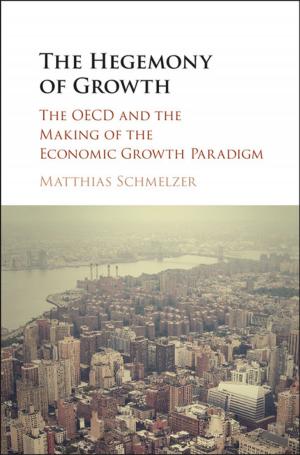Pattern Formation and Dynamics in Nonequilibrium Systems
Nonfiction, Science & Nature, Science, Physics, General Physics, Mathematics, Technology| Author: | Michael Cross, Henry Greenside | ISBN: | 9781139636735 |
| Publisher: | Cambridge University Press | Publication: | July 16, 2009 |
| Imprint: | Cambridge University Press | Language: | English |
| Author: | Michael Cross, Henry Greenside |
| ISBN: | 9781139636735 |
| Publisher: | Cambridge University Press |
| Publication: | July 16, 2009 |
| Imprint: | Cambridge University Press |
| Language: | English |
Many exciting frontiers of science and engineering require understanding the spatiotemporal properties of sustained nonequilibrium systems such as fluids, plasmas, reacting and diffusing chemicals, crystals solidifying from a melt, heart muscle, and networks of excitable neurons in brains. This introductory textbook for graduate students in biology, chemistry, engineering, mathematics, and physics provides a systematic account of the basic science common to these diverse areas. This book provides a careful pedagogical motivation of key concepts, discusses why diverse nonequilibrium systems often show similar patterns and dynamics, and gives a balanced discussion of the role of experiments, simulation, and analytics. It contains numerous worked examples and over 150 exercises. This book will also interest scientists who want to learn about the experiments, simulations, and theory that explain how complex patterns form in sustained nonequilibrium systems.
Many exciting frontiers of science and engineering require understanding the spatiotemporal properties of sustained nonequilibrium systems such as fluids, plasmas, reacting and diffusing chemicals, crystals solidifying from a melt, heart muscle, and networks of excitable neurons in brains. This introductory textbook for graduate students in biology, chemistry, engineering, mathematics, and physics provides a systematic account of the basic science common to these diverse areas. This book provides a careful pedagogical motivation of key concepts, discusses why diverse nonequilibrium systems often show similar patterns and dynamics, and gives a balanced discussion of the role of experiments, simulation, and analytics. It contains numerous worked examples and over 150 exercises. This book will also interest scientists who want to learn about the experiments, simulations, and theory that explain how complex patterns form in sustained nonequilibrium systems.















